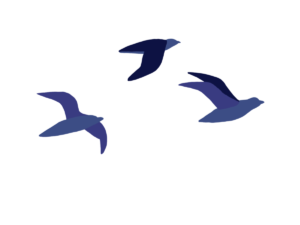This report is the first of its kind, written from the perspective of First Nations, Inuit and Métis scholars and practitioners. The report’s key messages offer an important starting point for more dialogue and action. However, they do not do full justice to the incredible amount of work being led by First Nations, Inuit and Métis. As we developed the report, the author team repeatedly identified the importance of making space for future work on key areas of research, exploration and discussion led by rights- and title-holders from within Indigenous communities. Future Indigenous-led climate-related work will require support and investment in our research, development, new technologies, novel approaches and entrepreneurship. This could include the following:
- Stronger consideration of gender, especially the knowledge, perspectives and experiences of Indigenous women, non-binary and 2SLGBTQQIA+ in climate research, assessments and actions, including projects led by Indigenous governments.
- Support for First Nations, Inuit and Métis governments and organizations to lead their own climate change assessments and strategies in order to develop their own evidence-base for making climate-informed decisions. This includes respect for Indigenous data sovereignty in line with their respective policies and protocols.
- A commitment to uplift Indigenous worldviews that respect all our relations in all aspects of climate-related research. This includes additional work on collaborative relationships that embrace multiple worldviews and prioritize “All My Relations.”
- Indigenous-led analysis on emerging concepts and discussions within climate discourse, such as net-zero, nature-based approaches and carbon offsets, in order to position First Nations, Inuit and Métis governments and organizations as leaders, as well as to avoid the misinterpretation of Indigenous Knowledge Systems.
- Indigenous-led research on the development and exploration of new funding models that are available directly to First Nations, Inuit and Métis at all levels to develop and lead Indigenous-led research.
- First Nations, Inuit and Métis developed theories around the necessity of access to healthy Land, Waters and Ice, especially for youth. We must articulate the ways that this is essential for fundamental health and wellness.
- Exploration of the required steps to decolonize climate research, assessments and actions to open space for First Nations, Inuit and Métis to advance our own climate governance and policy.
- Additional research on the intersections between Indigenous law, governance and climate change.
- Research on links between Indigenous languages and climate change, with the intention to strengthen connections between Indigenous stewardship and caretaking, biodiversity and Indigenous Knowledge and language retention.
- Support ongoing, sustainable and equitable funding for land-based training programs at local and regional scales, recognizing hunters and harvesters (and training those for the future) as key to increasing food security, transmitting traditional knowledge, monitoring and assessing the environment, and increasing community health and well-being.
- Indigenous-led research on the connections between climate change, health and wellness at local, regional, national and international levels, including critical review of concepts such as planetary health and One-Health (recognizing the connection between the health of people, animals and the environment).
- Case stories on effective partnerships between First Nations, Inuit and Métis governments and organizations with allied organizations (e.g., academics, environmental non-governmental organizations, governance and other stakeholders) to advance Indigenous-led climate actions.
